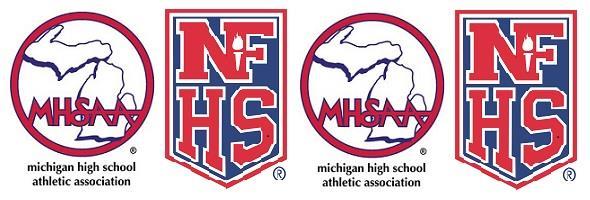
Be the Referee: Swim Finishing Touch
September 19, 2019
This week, MHSAA officials coordinator Sam Davis explains a new rule in swimming that allows for more flexibility when determining when a competitor has finished a race.
Be The Referee is a series of short messages designed to help educate people on the rules of different sports, to help them better understand the art of officiating, and to recruit officials.
Below is this week's segment - Swimming Finishing Touch - Listen
There’s a swimmer-friendly rules change being made in that sport this season. The definition of a legal finish has been changed to allow a competitor to touch any part of the finish end of the lane.
Previously, a swimmer had to contact the touch pad for a legal finish. The touch rule has also been changed to apply during relay races – where prior to this season only the final swimmer had to touch the finish end of the pool.
While the changes may provide some flexibility for swimmers, it does put additional responsibility on lane judges and back-up hand timers to be ready for those occurrences when a swimmer does not contact the touch pad.
Sept. 12: Curbing Gamesmanship By Substitution - Listen
Sept. 5: Football Safety Rules Changes - Listen
Aug. 29: 40-Second Play Clock - Listen

Become an Official: HS Sports Need You
January 24, 2018
By Bob Gardner, Executive Director of the National Federation of State High School Associations
and Mark Uyl, Assistant Director of the Michigan High School Athletic Association
They don’t make the headlines, their names are not in the box scores and they don’t make the all-star teams. But perhaps the most important individuals in high school sports are the contest officials.
These individuals are so important that, in fact, there would be no organized competitive sports at the high school level without the men and women who officiate these contests every day across the country. Subtract the dedicated men and women who officiate high school sports, and competitive sports would no longer be organized; they would be chaotic.
In some areas of our country, high school officials are retiring faster than new ones are being added. And junior varsity, freshmen and middle school games are being postponed – or even cancelled – because there are not enough men and women to officiate them.
Anyone looking for a unique way to contribute to the local community should consider becoming a registered high school official. For individuals who played sports in high school, officiating is a great way to stay close to the sport after their playing days have ended. Officiating helps people stay in shape, expands their social and professional networks and offers part-time work that is flexible, yet pays. In fact, officiating is a form of community service, but with compensation.
Another benefit of officiating is that individuals become role models so that teenagers in the community can learn the life lessons that high school sports teach. Students learn to respect their opponents and the rules of the game and the importance of practicing good sportsmanship thanks, in part, to those men and women who officiate. And the objectivity and integrity that high school officials display is an example that every young person needs to observe firsthand. In short, communities around the country will be stronger because of the life lessons that high school officials help teach the next generation.
Officiating is a great way to stay connected to sports and to give back to the local high school and community. We need dedicated men and women to become involved so that high school sports can continue to prosper for years to come.
Individuals interested in learning more about becoming a high school official, and even beginning the application process, can do so at www.HighSchoolOfficials.com.

